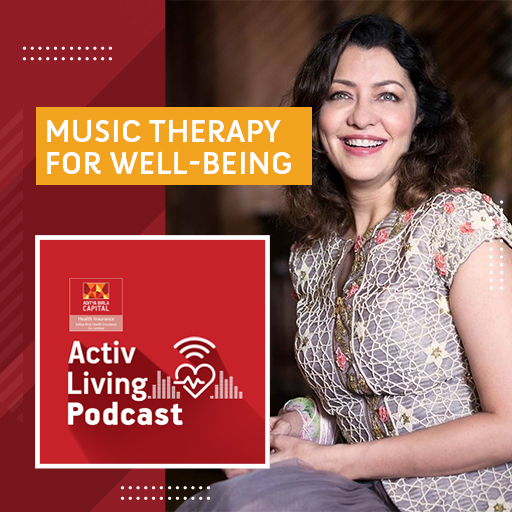Lung cancer is a form of cancer that starts in tissues of the lung, in the cells that line your air passages. It has been found that almost 5.9% of all cancer cases are lung cancer, making it a fatal illness. There are two main types of lung cancer; non-small cell lung cancer and small cell lung cancer. In this blog, we’ll help you with some tips that you can incorporate to manage the effects of lung cancer.
Symptoms of lung cancer
Among the various types of cancer, lung cancer is one of the deadliest chronic conditions primarily caused by smoking and inhaling secondary smoke. Lung cancer does not show any signs in the early stages. The symptoms occur when the disease is advanced, which may include:
- A cough that doesn’t go away
- Coughing up blood
- Chest pain
- Shortness of breath
- Hoarseness
- Bone pain
- Headache
- Losing weight unintentionally
Types of lung cancer

There are two main types of lung cancer:
Non-small cell lung cancer (NSCLC): The main sub-types of NSCLC are:
- Adenocarcinoma: This type of cancer starts in the cells that normally secrete mucus. It occurs mainly in people who currently smoke or formerly smoked.
- Squamous cell carcinoma: This type of cancer starts in the squamous cells, which are flat cells that line the inside of the airways in the lungs. Squamous cell carcinoma is linked to smoking history and can be traced in the central part of the lungs, near the bronchus.
- Large cell (undifferentiated) carcinoma: This is fast-growing cancer that can appear in any part of the lungs, making it harder to treat.
Small cell lung cancer (SCLC) grows quickly but responds well to chemotherapy and radiation therapy.

Smoking is the leading cause of cancer. Inhaling secondhand smoke or environmental tobacco smoke can also increase the risk of developing cancer. In addition, exposure to carcinogenic elements in the workplace, including radioactive ores like uranium, diesel exhaust, and inhaled chemicals, such as arsenic, coal products, or chromium compounds, can be harmful to the lungs.
Lifestyle changes
It is essential to take precautionary steps to reduce the risk of lung cancer or any other form of cancer.
- Smoking can irritate the lungs and slow tissue healing. When you quit smoking, the body can start repairing itself. It can boost your immune system to fight against cancer and improve recovery from treatment.
- Even if you don’t smoke, passive smoking or secondhand smoke also puts you at a higher risk of lung cancer. Whether you’re inhaling smoke from the burning end of a cigarette or the smoke exhaled by a smoker, you are exposed to the same toxic chemicals as smokers. Here are some ways to avoid passive smoking:
- Establish a no-smoking rule inside your home
- Encourage your workplace to adopt a smoke-free policy
- Avoid designated smoking zones at work and in public places
- Pick smoke-free restaurants, hotels, entertainment venues and transportation
- Request smokers to smoke away from you
- Use high-quality air purifiers to help reduce smoke particles in the air
- Lung cancer can affect breathing, mobility, speech, and swallowing. However, supportive therapies such as oxygen therapy and speech therapy can help you deal with the treatment.
- Get active to stay physically fit. Even light exercises can promote overall fitness and boost your immune system.
- Make healthy dietary changes. Eat a balanced diet rich in fruits and vegetables, proteins, healthy fats, and whole grains. Proper nutritional support can help tissue heal, recover, and provide energy.
- Reduce your risk of infection. While battling this condition, the body’s immune system weakens, which may increase the severity of common infections like colds and the flu. Therefore, practice basic hygiene. Wash your hands thoroughly, especially before and after meals. Avoid crowds, especially during the flu season, and avoid touching your eyes, mouth, and nose after coming into contact with surfaces or objects.
- Get regular checkups.
- While facing this disease, seek support from your family, friends, caregivers, and support groups.
Stay tuned to the Activ Living Community. Keep up to date with the latest health tips and trends through expert videos, podcasts, articles, and much more on nutrition, fitness, mindfulness, and lifestyle conditions like Asthma, Blood Pressure, Cholesterol, and Diabetes. Activ Living ke saath sahi sehat ki shuruat ABHI karo.
You may also be interested in the following blogs:
Popular Searches
How to lower blood pressure | Fruits good for liver | Unhealthy foods | Ragi Benefits | Basal Metabolic Rate | Acupressure points for High Blood Pressure | Ayurvedic medicine for blood pressure | How to control cholesterol at home | Homeopathy for Asthma | Biological Age | Home remedies for TB | Natural beta blockers | Negative effects of internet | Types of walking | Blood pressure calculator | Blood sugar calculator | BMI Calculator





 1800-270-7000
1800-270-7000









